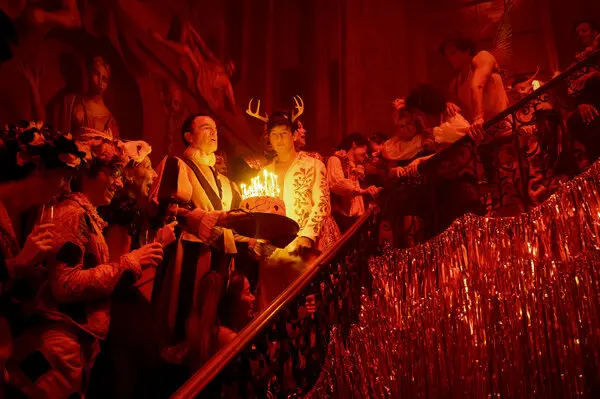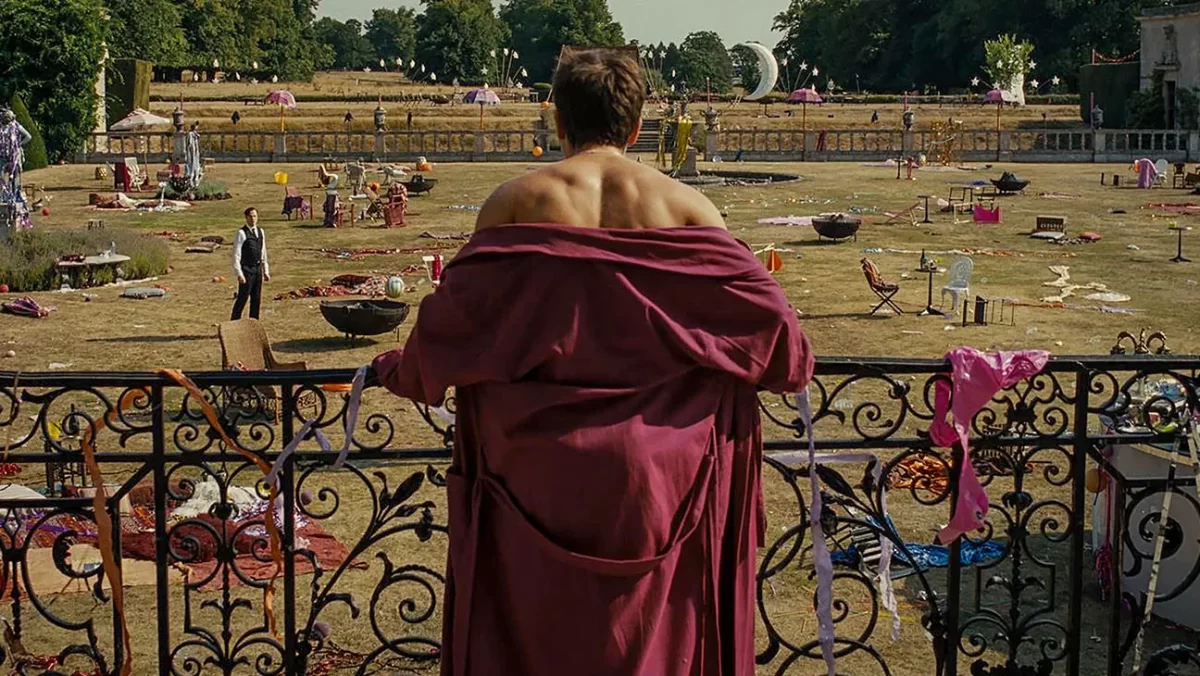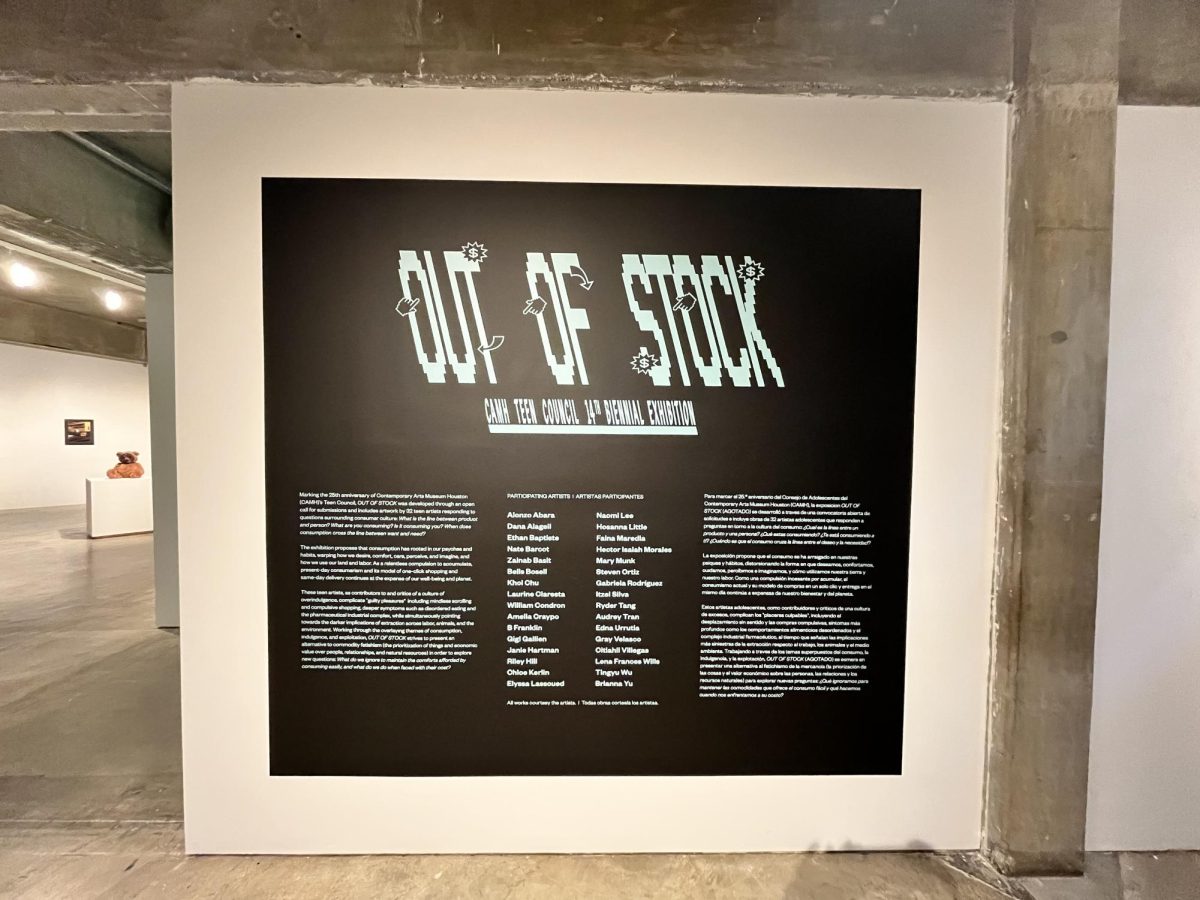Sophie Ellix-Bextor’s song, “Murder On The Dancefloor,” had taken over my entire FYP. All of the videos to the song were teenagers walking out of a movie theater utterly flabbergasted after watching Emerald Fennell’s “Saltburn.” I wondered, what could’ve possibly happened in this movie for people to look so revolted?
The only thing I knew coming into this movie was that it was directed by the same director who made “Promising Young Woman,” one of my favorite movies. I made sure that was the only thing I knew. I planned to come into this movie completely blind to truly get the full experience of whatever the “big shocker” was.
Disclaimer: The rest of this review contains multiple spoilers on “Saltburn”
A detail that I loved was that the movie started with a 30-second montage of every shot in the movie. It showed the ending without the audience even understanding what anything meant and it was also all just shots of Jacob Elordi being pretty. (Elordi’s looks are a constant focus in this movie.)
We meet our protagonist, Oliver Quick (Barry Keoghan), an English major at Oxford University and a low-income student who attends the school on a scholarship. To put it frankly, when Oliver was first introduced I thought of him as a big loser. The boy didn’t understand social cues, he dressed like if Harry Potter and a stereotypical 70s serial killer had a baby, he was in love with a guy who would never love him back, and he was just plain weird.
Oliver becomes friends with aristocrat pretty boy Felix Catton (Jacob Elordi) after Oliver lends him his bike when Felix gets a flat tire. Like I said, Oliver becomes obsessed with Felix, and it’s downright depressing. However, when Oliver’s alcoholic and abusive father dies suddenly, Felix offers Ollie an invitation to his titular family estate in Saltburn for the summer. This is where things start to get interesting.
The Catton house is the Palace of Versailles (not literally but might as well be — during Felix’s tour of the mansion he mentions Henry VIII like VIII times). When Oliver meets the rest of the family, they beg him to tell his sad sob story about his dead alcoholic dad, drug addict mother and peasant-like past. The Catton family live a lavish lifestyle, but they’re still bored and they’re desperate for a new toy to add to their playpen. To them Ollie is, as they so lovely put it, “so real.” Around this point, I wondered if this was going to be a British “Get Out” situation. But oh boy, was I wrong.
After his first night at Saltburn, I notice how Oliver starts to change his attitude. He reads the books he finds around the house so he can bring up facts on the art and literature that the family enjoys as if he’s always had that knowledge. He lightly flirts and gossips with Felix’s mother (Rosamund Pike). I won’t get into the stomach-churning erotic details of what Oliver does in a bathtub after Felix is done bathing in it, or his secret meetings with Felix’s sister, Venetia (Alison Oliver). What I also noticed is that apart from getting close to each of the family members, Oliver studies them, picks apart their weaknesses and saves these observations in his pocket for a rainy day. This is not the dud I first witnessed at the start of the movie.
To celebrate his birthday, the Cattons throw Oliver a massive party where they all dress up as “Midsummer” characters. Before the party, Felix decides to surprise Ollie with a trip to visit his mom, who according to Ollie is a drug addict. When they start driving into his neighborhood, the audience is left puzzled by the bright colors and suburban houses. This is not the house of a cocaine addict. When Oliver’s mother opens the door, she is the image of a lady who gives kids full-sized candy bars on Halloween and regularly posts on Nextdoor. To an even bigger shock, Oliver’s supposed-dead dad also shows his bright smiley face! Oliver’s been lying about everything. When Felix finds out, he tells him that after the party, Oliver needs to get his things and go.
My question is: if he’s not poor… and his family is normal… then why do all of that? If it’s not money or a family that he’s after, then what?
The scene that answered this for me was when everyone at the party sings Oliver happy birthday but forgets his name—“Happy Birthday dear [crickets]… happy birthday to you!” In films, red rooms usually represent a character’s mental health. In this case, it finally highlights what Ollie is obsessed with, legacy. Oliver craves to be, like Felix, the most important person in the room. In this scene, he grapples with the anxiety that Saltburn and the status he has made up in his head will be taken away from him. When people don’t even know his name when singing him a happy birthday, it just highlights his own worst fear and everything he has been trying to escape from. When everyone laughs at him, he feels utterly humiliated, and it eventually drove him even more insane and led to him doing some utterly repulsive things.

The film is incredibly well-crafted. Fennell truly did her job right. “Saltburn” violently and thought-provokingly portrays repulsion and desire, probing the ways that intense want can transform into something deeply disturbing. Fennell understands that obsession is not merely possession; its end goal is consuming the object of your satisfaction wholly— licking the plate clean (if you know what I mean).
Honestly, I think people have been overreacting to how “scandalous” this movie is. This film is definitely not for everyone, but it is undeniably compelling and fearlessly revels in its own elegant peculiar nature. It may have been utterly uncomfortable at times, but there’s been worse. If you were put off by this movie, I suggest not watching “Inland Empire,” “The Wailing,” “Perfect Blue,” or any early 2010s A24 production.















